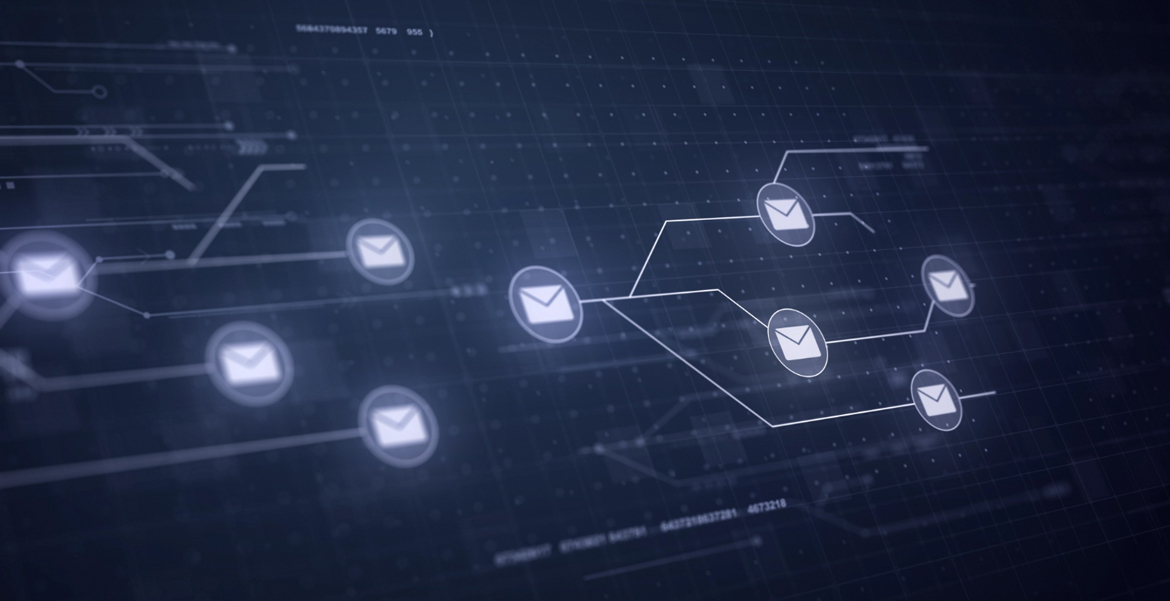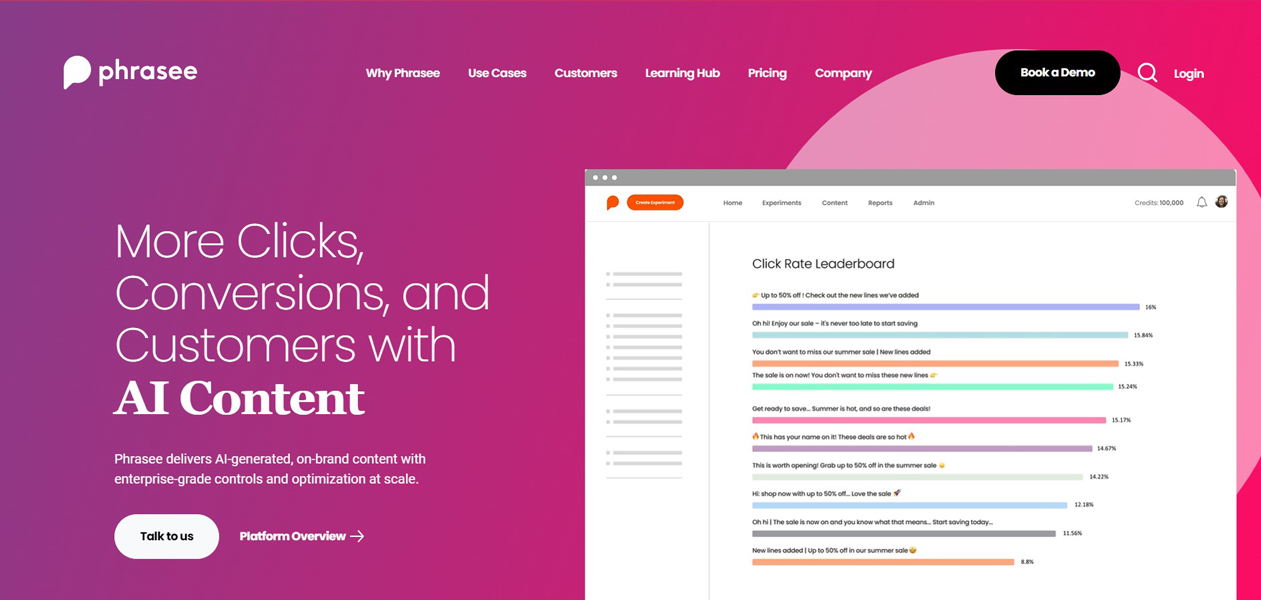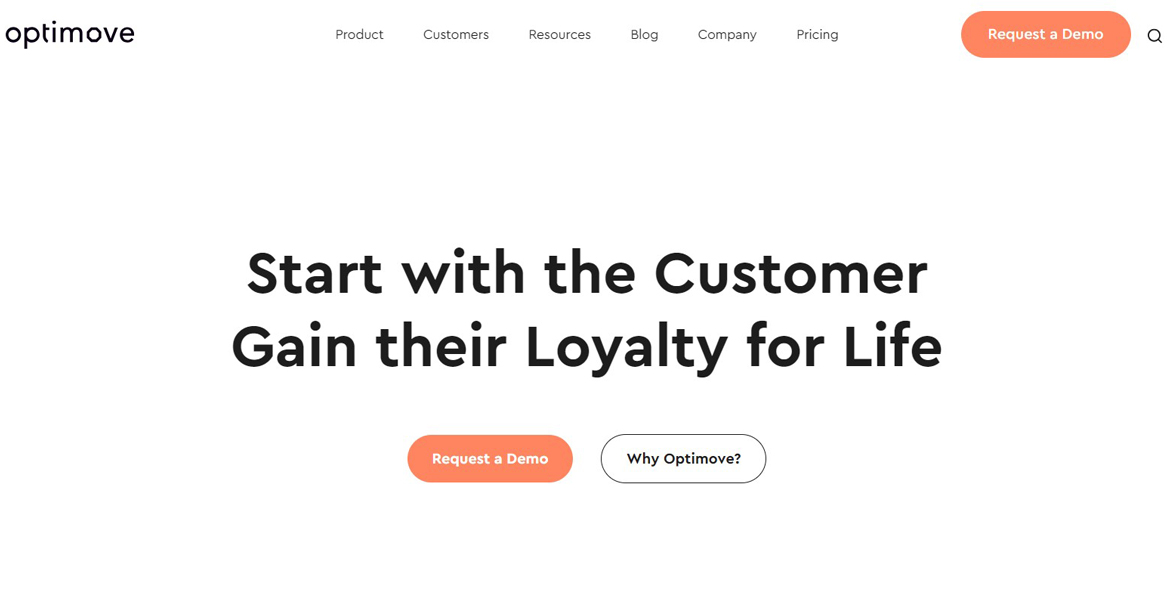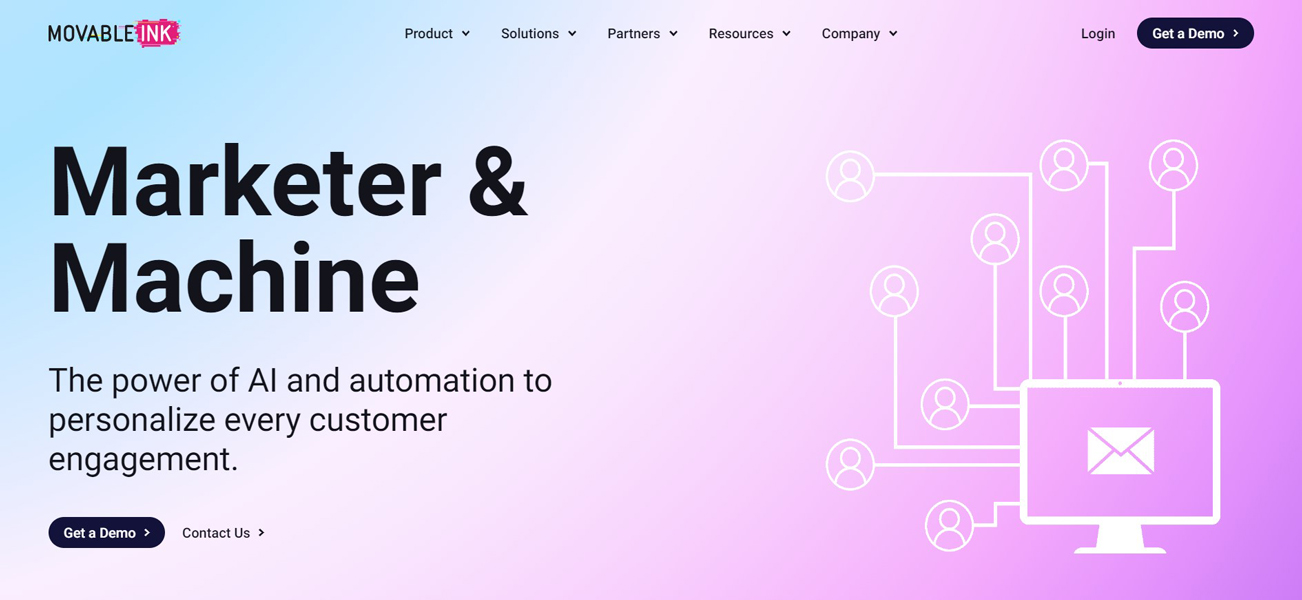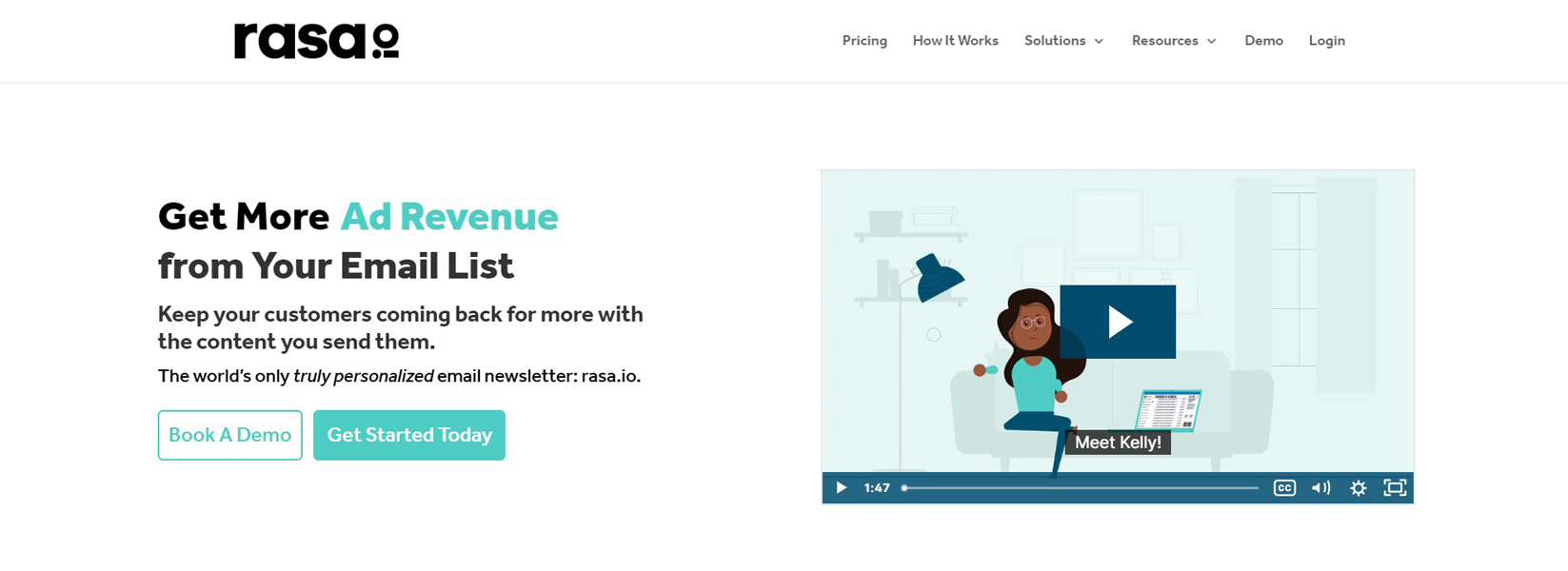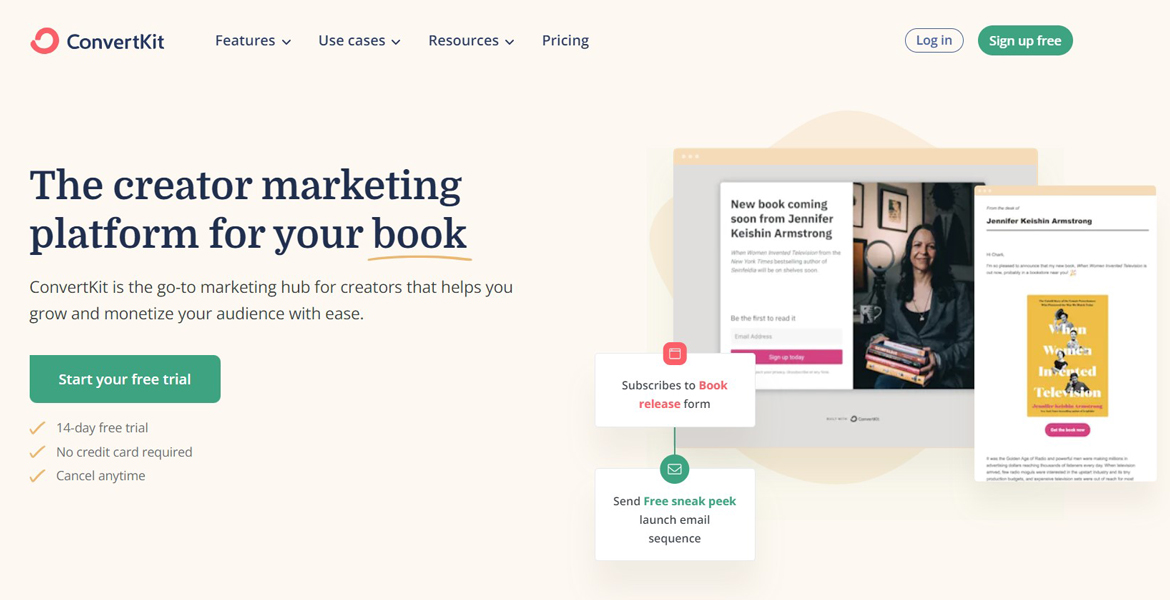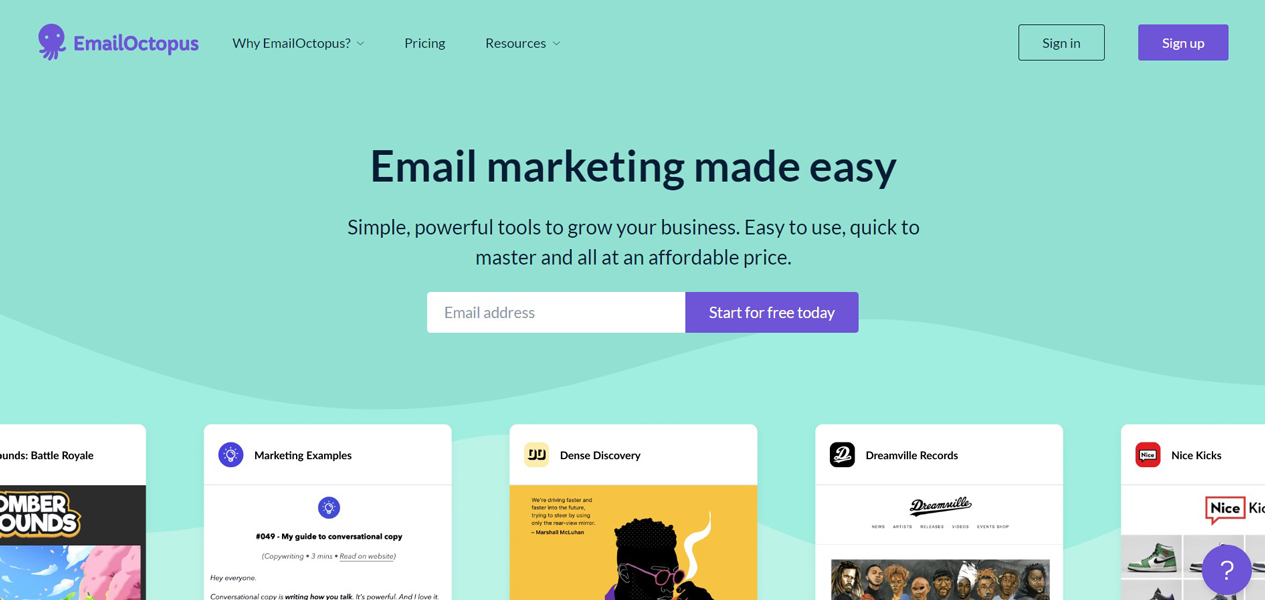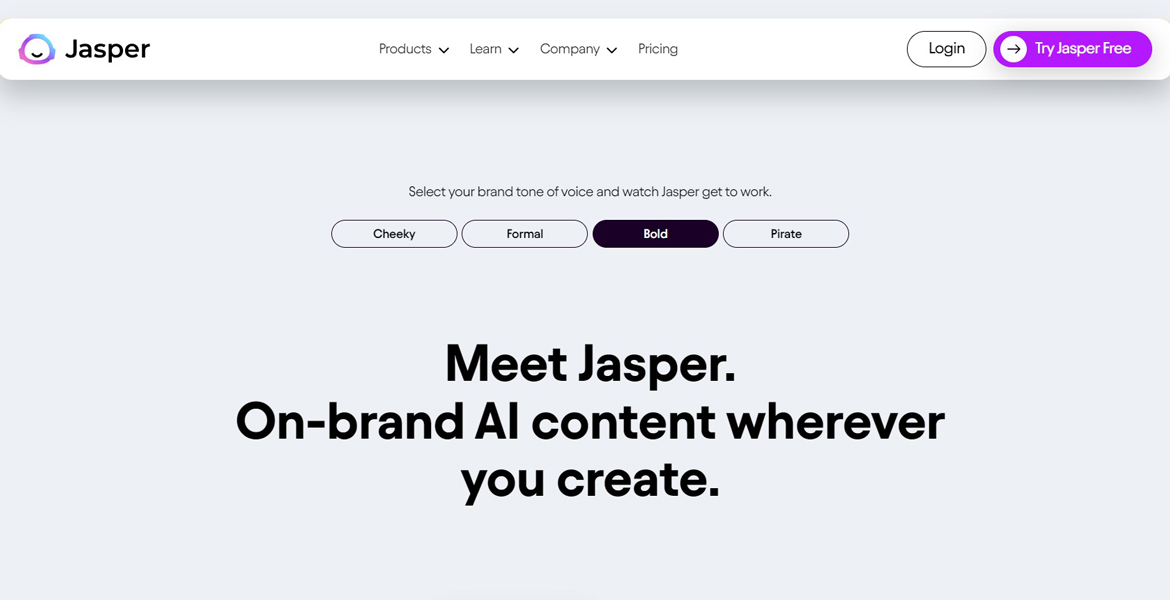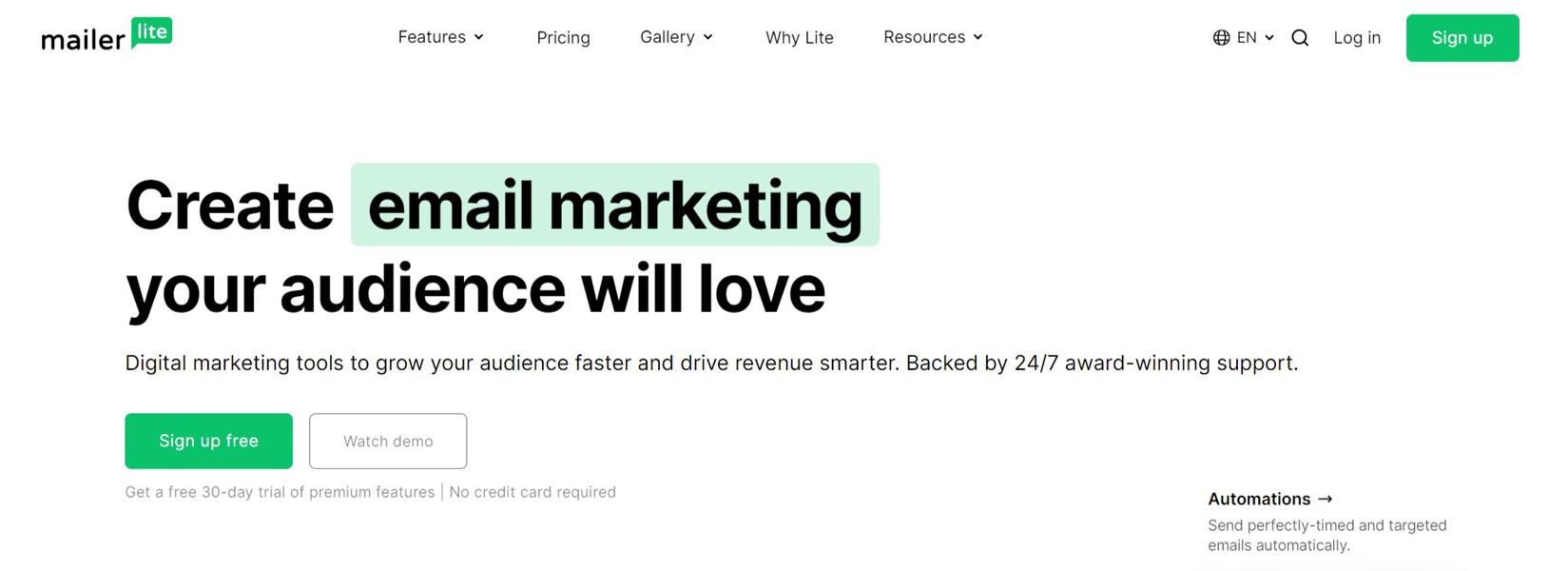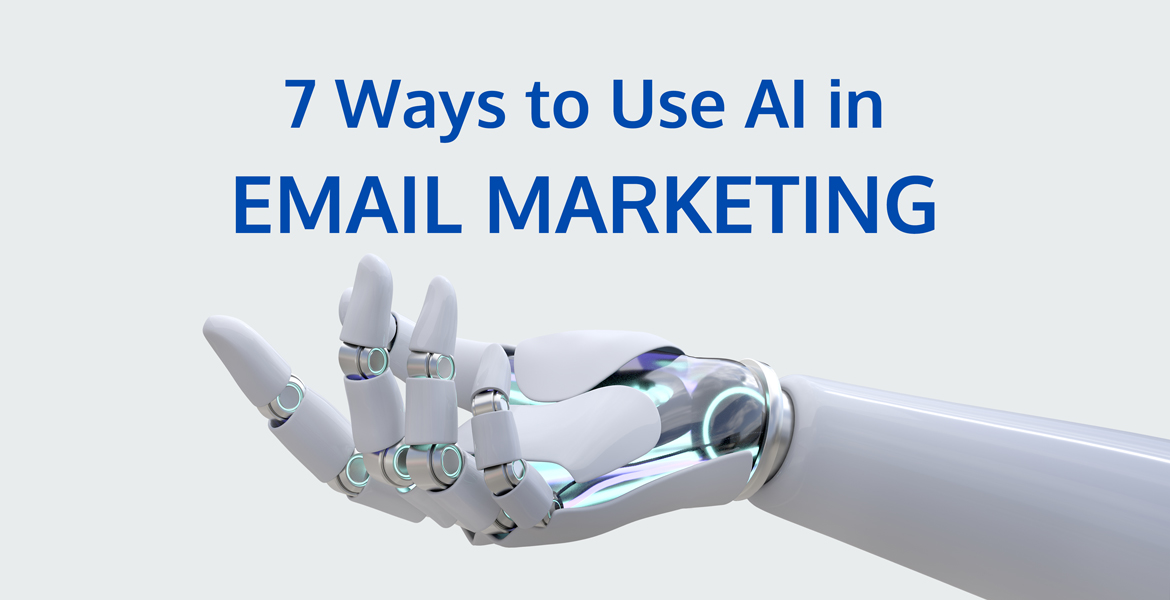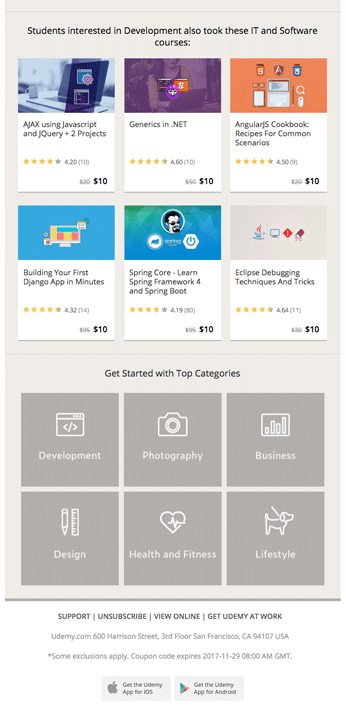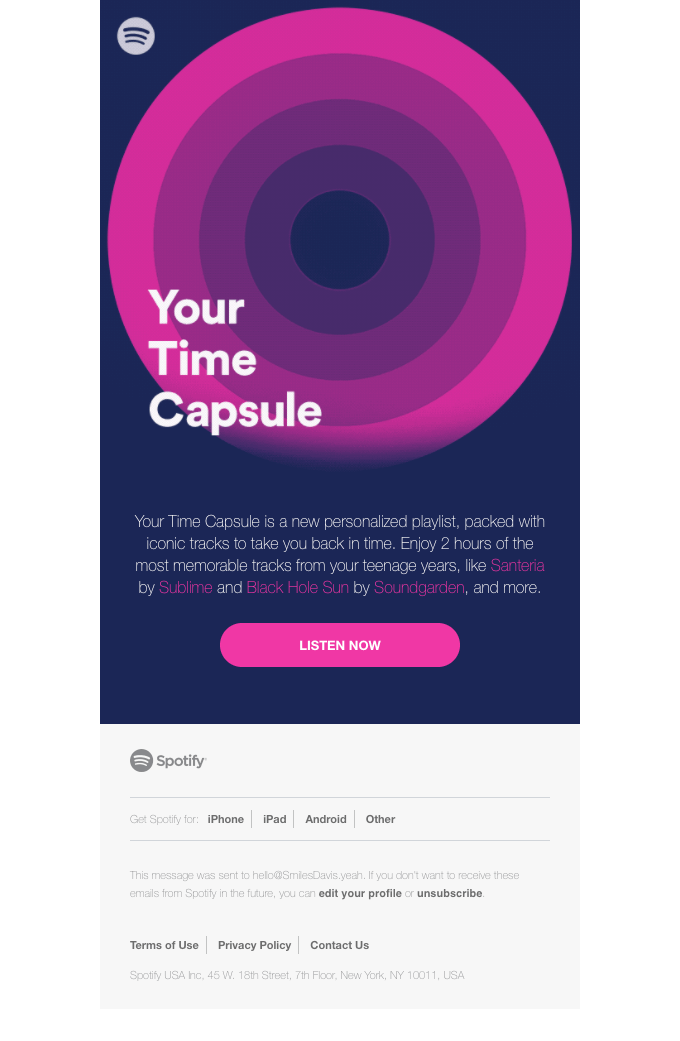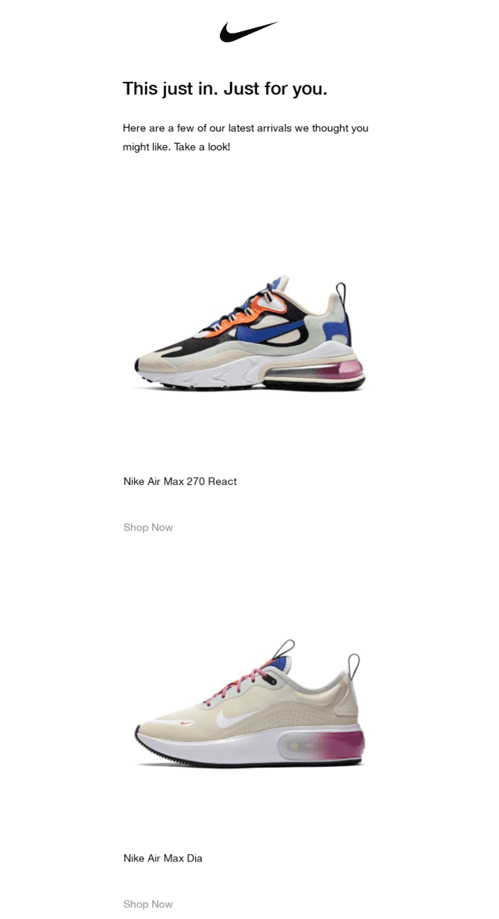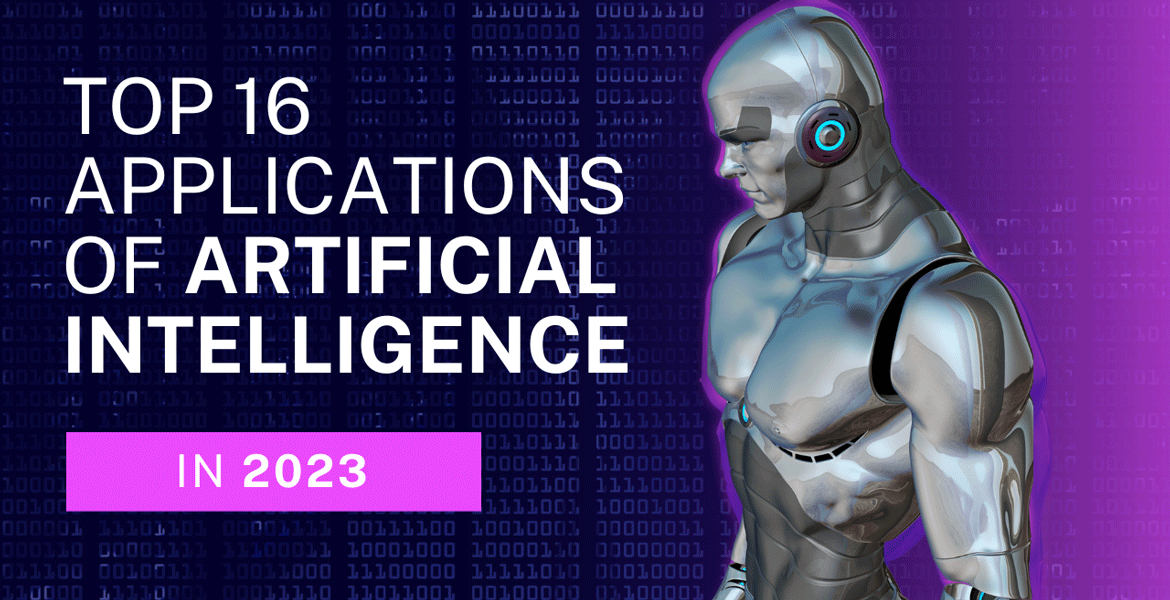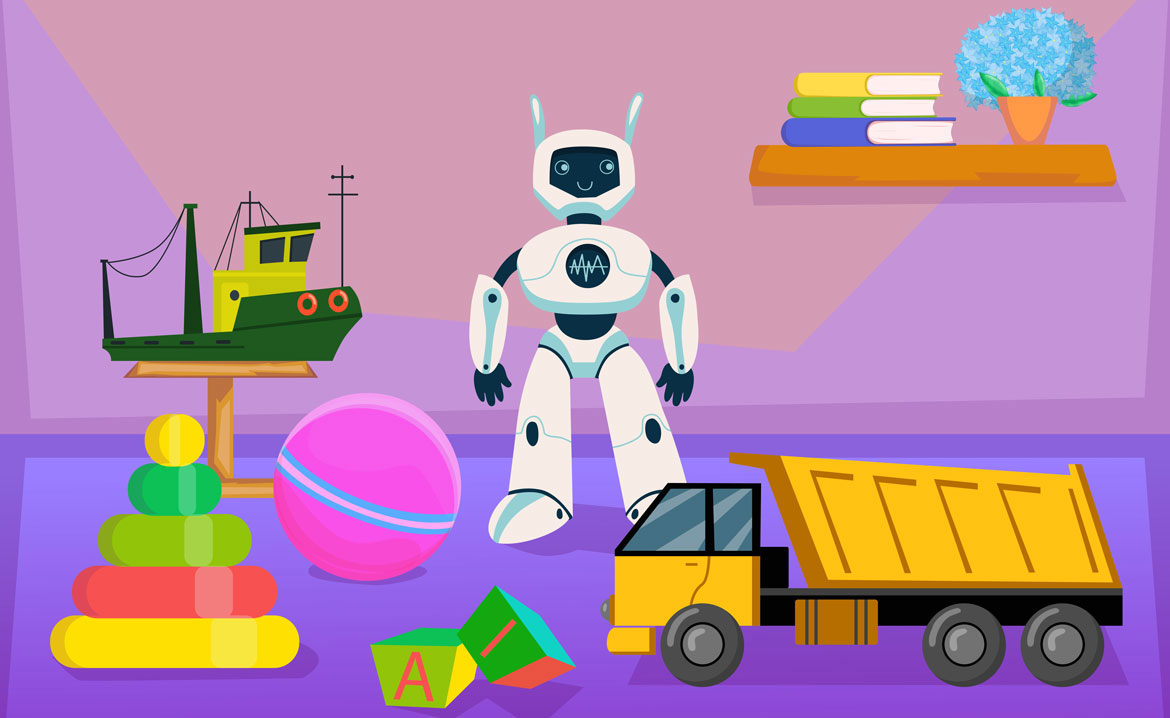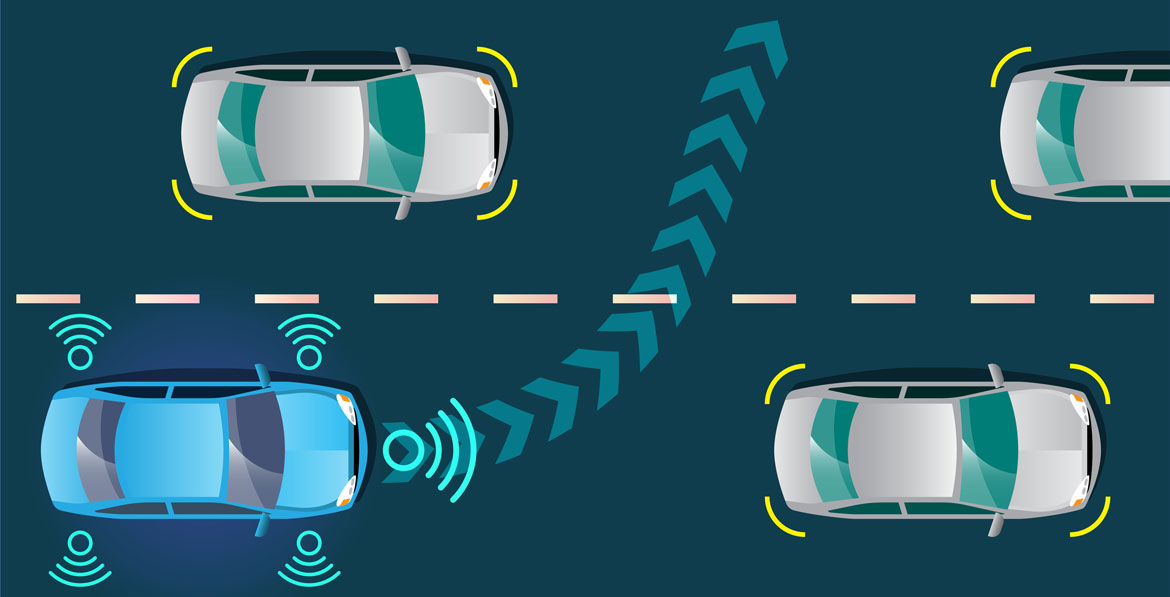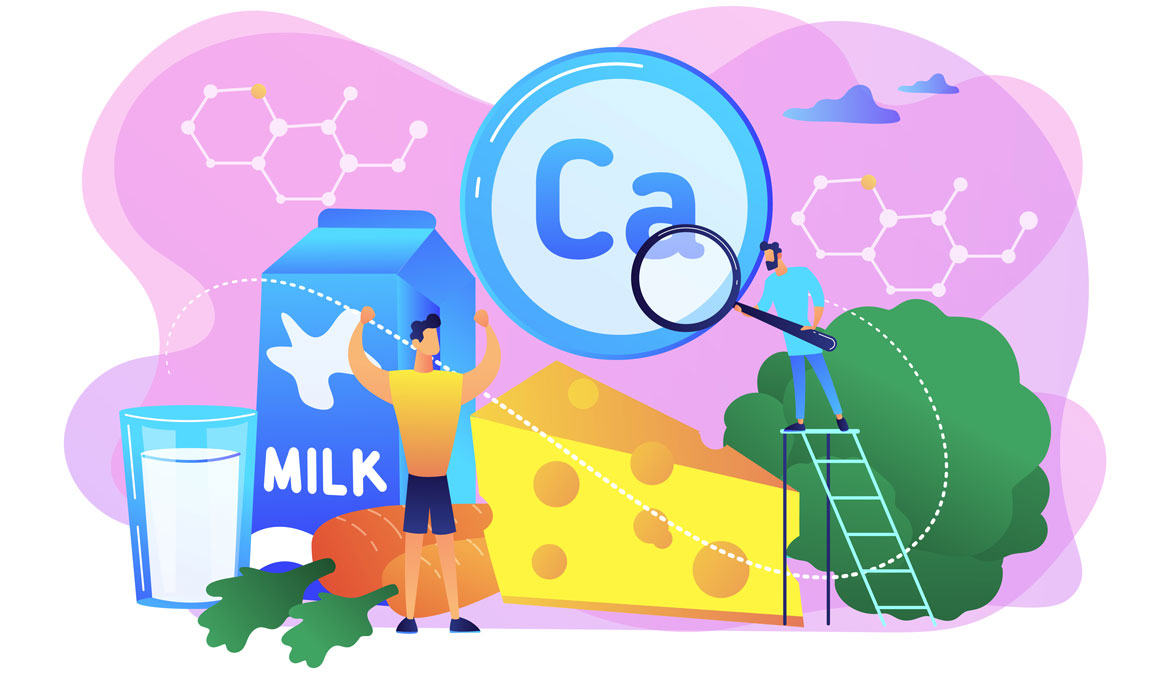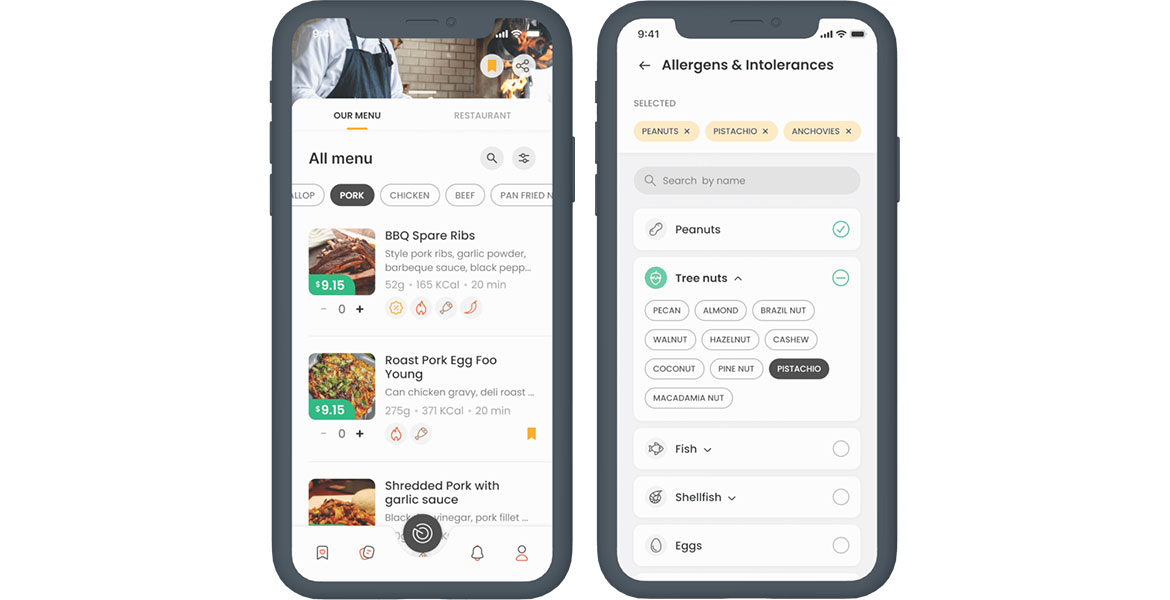Time is the most valuable resource, and productivity is becoming a key factor. We are constantly looking for ways to work faster, more efficiently and with less effort.
It seems like there’s always not enough time, and there’s only more to do. But the good news is that modern technology can take some of the work off our hands. In 2025, artificial intelligence (AI) is no longer something out of science fiction, but a real-life personal assistant that can speed up tasks, free the mind, and even help you focus.
Let’s break down twelve cool AI tools in five areas that can help you work faster, more efficiently, and with less stress: communication, meeting scheduling, task management, data analysis, and distraction management.
Table of Contents
- What is Productivity and Why is it Important?
- Writing and Communication
- Smart Scheduling
- Task Management
- Data Analysis and Decision-Making
- Focus and Distraction Management
- Conclusion
But first, let’s look at what productivity means to an employee and why it’s important to a company.
What is Productivity and Why is it Important?
Before we get into AI tools, let’s define what productivity means in general.
For an employee, it’s not just “doing more” — it’s the ability to work efficiently, prioritize their tasks, and achieve results without burnout.
When a person is productive, he or she does not waste time on routine, but focuses on the tasks that are really important at the moment.
For a company, employee productivity has a direct impact on success. The better organized the processes are and the less time wasted, the higher the profit, the faster the projects are completed and the better the quality of work.
This is where AI tools come to the rescue — they help automate routine tasks, reduce the human workload, and increase the efficiency of the entire team.
Writing and Communication
Communication is one of the most important skills for a professional in almost any profession. Imagine: you need to quickly answer dozens of emails, compile a report, write a convincing LinkedIn post, and convey a complex idea to your team in a way that is accurately understood.
The task is actually not as easy as it seems at first glance. Especially if you’re running out of time.
This is where AI-based writing and communication tools can help us.
Such applications help you write not only much faster and more convincingly, but also:
- Improve the style and structure of the text
- Check grammar and spelling
- Suggest phrase variations and rephrasing
- Help to adapt the tone of messages, for example, to make the letter formal or, on the contrary, informal.
AI tools for writing and communication will be useful for almost everyone, but especially for executives and project managers, entrepreneurs, marketers, SEO and SMM specialists.
1. Grammarly
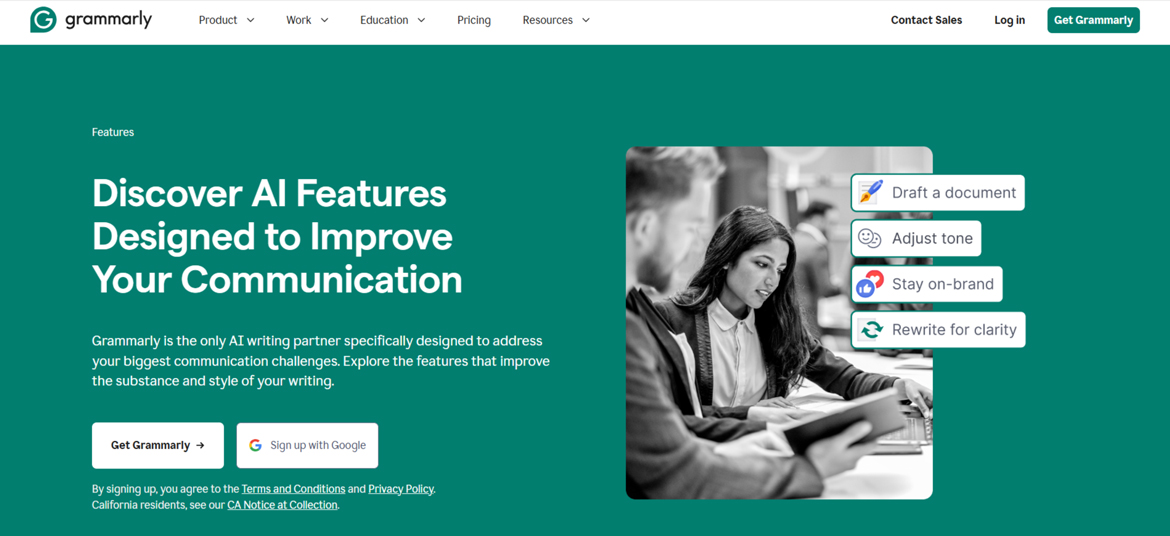
Grammarly is not just a grammar checker, but a real writing assistant. Grammarly works everywhere: web browsers, desktop apps, email clients, and more.
The service analyzes the tone of messages, suggests how to make the text more convincing or friendly, and also helps to avoid ambiguities.
Free, Pro and Enterprise versions are available. The free version has a limited number of functions, while the paid versions offer extensive features such as plagiarism analysis, service support and data loss prevention.
2. ChatGPT

Being a popular and versatile tool, ChatGPT even in the free version has a lot of useful features. It can not only write texts, but also generate ideas, summarize long articles, and even script conversations with clients.
3. QuillBot
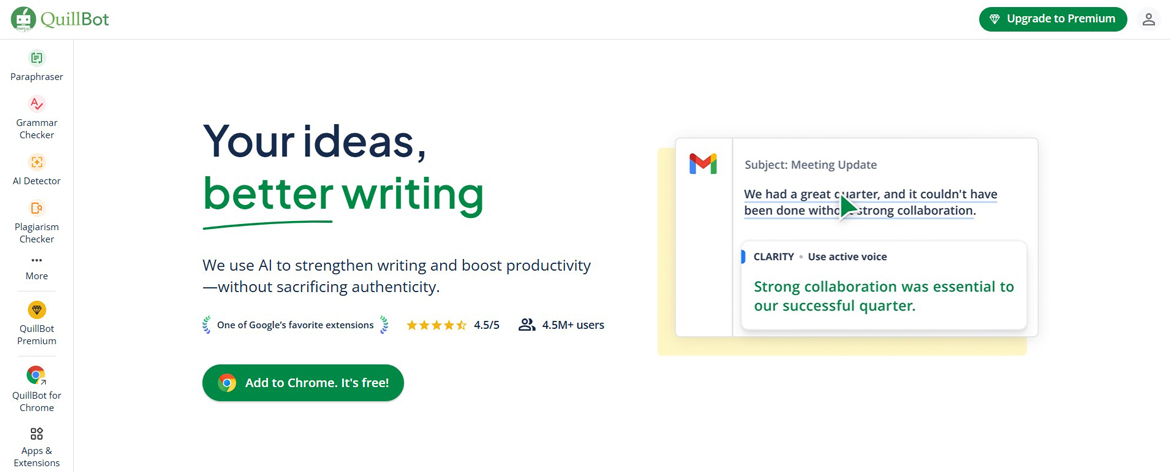
This tool is ideal for paraphrasing and improving text. If you need to say something differently, but keep the meaning the same, this app will handle it in seconds. In addition, QuillBot offers functions to detect if the text is AI or human-written.
After registration, you can use the service directly on the site. The free version is quite sufficient for working with small amounts of text.
For the convenience of users, the team has developed extensions for Chrome, Word, and Edge, as well as mobile applications for iOS and Android.
QuillBot Premium offers everything the same as the free version, but the number of text characters is unlimited, custom modes are available, and much more.
These and other similar AI tools for writing and communication are not just a convenience, but also a way to save time and thus increase your productivity. So, if your position involves texting (and who doesn’t?), give it a try and you’ll be surprised how much easier your work becomes.
Smart Scheduling
Have you ever had this happen: you open your Google calendar and realize that today is a total chaos? Meetings are coming one after another, because of time zone differences, an online meeting is scheduled either at night or early morning for you, and there is not even a free minute between calls. Withal, time for important tasks is disastrously short, it seems to be floating away through your fingers.
If you realize that you can’t cope with scheduling, and every now and then you overlap one call with another, use special scheduling apps.
Such AI services are so intelligent that they can analyze your schedule, pick convenient slots for meetings, suggest times when you’re actually productive, and even prevent conflicting events. No more wasting time with “Could you be at the meeting on Thursday at 3pm? No? How about Friday?”.
4. Calendly
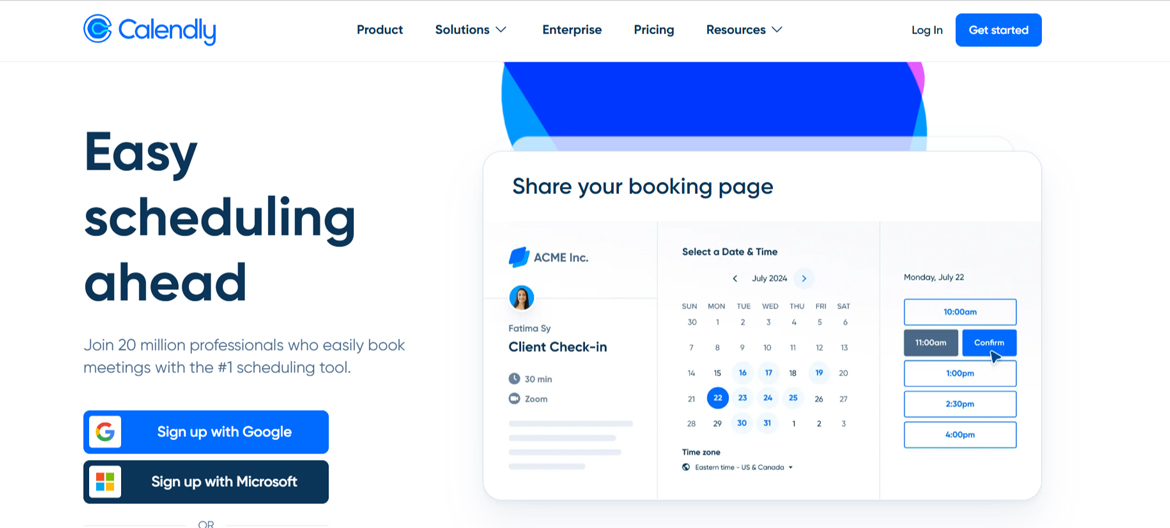
For example, Calendly is one of the most popular AI assistants for scheduling meetings. It completely removes the need for endless emails with time specifications and allows you to quickly find convenient slots for all participants.
What is it useful for?
- Allows you to simply send a link to your schedule and the person will choose the appropriate time.
- Takes time zones into account, which is especially useful for international teams.
- Integrates with Google Calendar, Outlook and other calendars, automatically blocking out busy times.
- Can send appointment reminders, reducing the risk of missed events.
Calendly offers several plans, from free to enterprise. The price depends on such features as, for example, integration with other calendar services, personalization of pages, 24/7 support, etc.
5. Clockwise
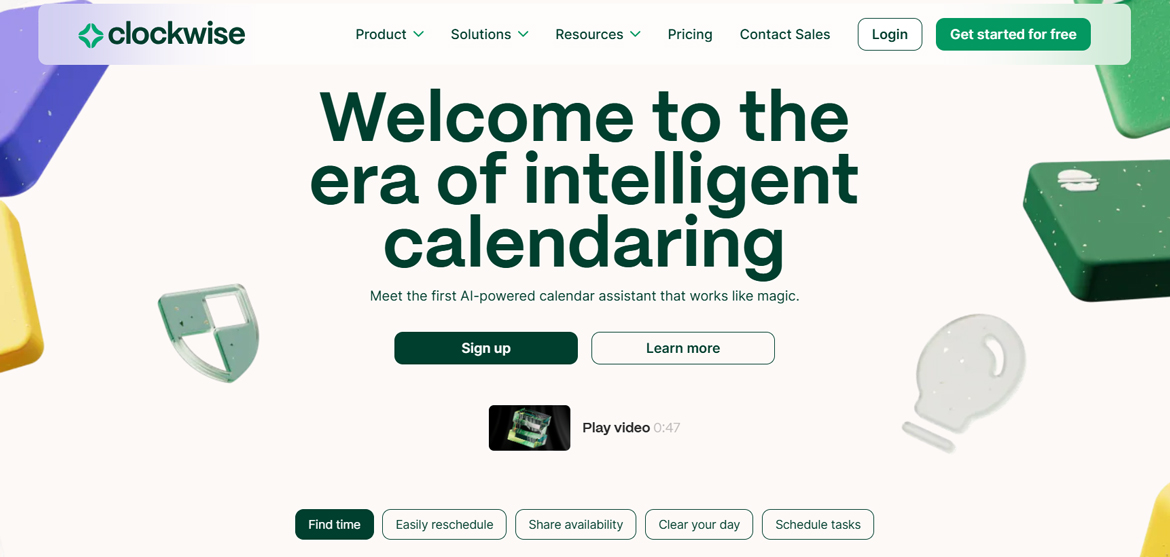
The second popular AI assistant is Clockwise. It analyzes your work schedule and distributes tasks so that you have more uninterrupted time for focused work.
Clockwise also automatically moves meetings around to minimize gaps in your schedule. And it also optimizes team calendars so everyone has convenient meeting times. Just like Calendly, it also integrates with popular calendars like Google Calendar.
Like Calendly, Clockwise offers a range of plans from free to enterprise. For example, the free plan is chosen by teams who need smart calendar management for a healthier working day. The business plan is for companies looking to automate calendar management org-wide.
Those who multitask and lose productivity due to frequent interruptions will find such services very useful. If you want to make your workday organized and without the extra stress of the one, take note of our list.
Task Management
No matter how skilled a specialist you are, without good task management your work can turn into chaos.
Imagine a situation: you are a project manager and you have several parallel projects. Deadlines on the projects come at the same time, the team works remotely, and suddenly one employee forgets about a critical task. This results in missed deadlines, excuses to the customer, stress and endless calls with the team.
That’s why clear task management is the foundation of productivity. When tasks are structured and prioritized, work goes much faster and without unnecessary nerves.
In this case, AI tools for task management can be a way out. Let’s take a look at a few of the most popular ones.
6. ClickUp
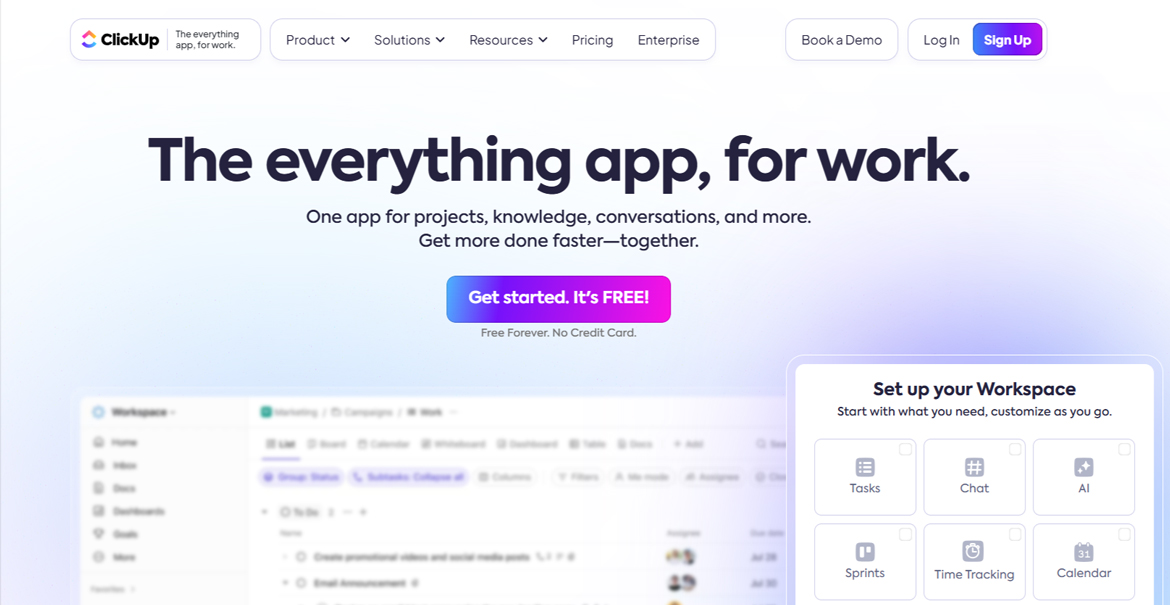
ClickUp is probably one of the most famous services for task management. It is suitable for both small teams and large companies, where technological processes are much more complex.
ClickUp has several main functions:
- Team workload analysis and task reassignment feature.
- Smart reminders that won’t let you forget about deadlines.
- Task automation (for example, if the status of a task has changed, you can set up a chain of follow-up actions).
- Visual boards, lists, calendars for the convenience of the whole team.
The service has both a free version, which is more suitable for personal use, and several paid solutions. Companies can choose a convenient tariff based on their goals, tasks and team size.
7. Motion
If for some reason ClickUp isn’t right for your company, check out Motion, another super-smart assistant.
Motion is able to self-assign tasks, analyze your day, and automatically insert tasks into free windows, adjusting to changes in real time.
Imagine you suddenly rescheduled an important meeting. Motion will immediately reassemble your day, moving tasks around so nothing gets lost. Sounds good, doesn’t it?
The service doesn’t have a free plan, only Individual, business Standard and business Pro. The price starts at $12 per month.
8. Notion
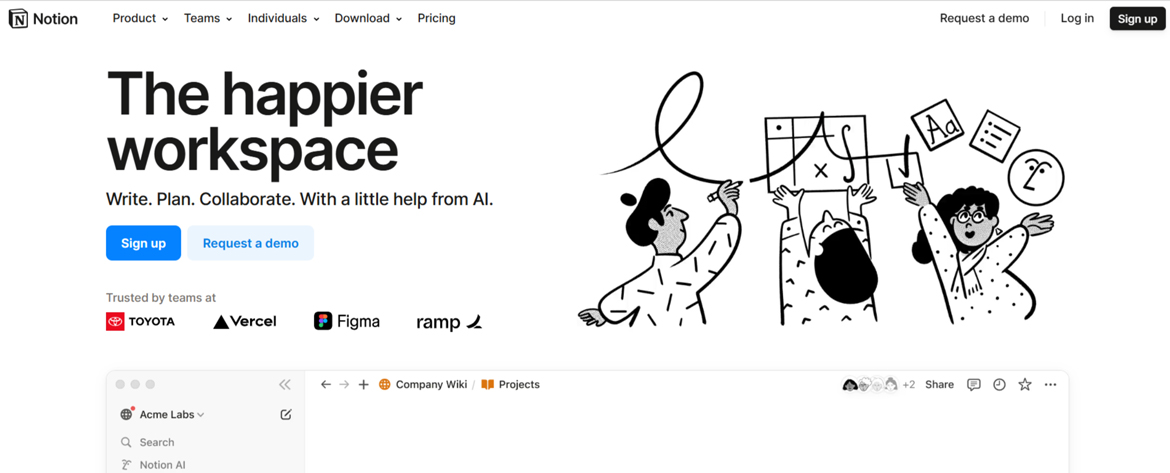
And the third useful tool for task management from our selection is Notion.
It isn’t just a task manager, but an entire ecosystem for managing workflows. Its main advantage is its flexibility. You can create a simple task board, or you can build a full-fledged knowledge base for the entire team.
In addition to this, Notion also:
- Combines tasks, notes, databases, and wikis.
- Allows teams to maintain projects in a convenient format (tables, boards, lists).
- peeds up information retrieval and automates processes.
Notion is perfect for creative teams, entrepreneurs, and those who want to customize their workflow as much as possible. $0 for the free plan, and paid plans start at $10 per seat/month.
Data Analysis and Decision-Making
Now let’s move on to one of the most difficult but important aspects of any company’s work — data analysis. In the business world, of course, intuition plays its role, but you can’t get very far without accurate figures and real calculations.
AI tools for analytics help not just to collect information, but to identify trends, predict the future and even suggest how to proceed. Let’s look at two powerful services that make working with data easier and clearer.
9. Tableau

If you have tables with tons of numbers, but no one on your team knows what to do with them, Tableau from Salesforce comes to the rescue. This software turns dry data into interactive charts and dashboards that are easy to read and analyze. It is the flexible data visualization (from simple charts to complex interactive reports) that has made this platform popular.
With built-in AI features, Tableau also analyzes data and suggests solutions worth paying attention to. The service easily connects to different data sources (Excel, SQL, Google Sheets, and even cloud services).
Tableau is especially useful for project managers, marketers, and anyone who works with reporting and wants to quickly understand what’s going on in the business.
The software package can be purchased from $35 per month. The most complete Enterprise Creator plan will cost $115 a month. And if you don’t dare to purchase software yet, the platform offers a free trial.
10. Power BI
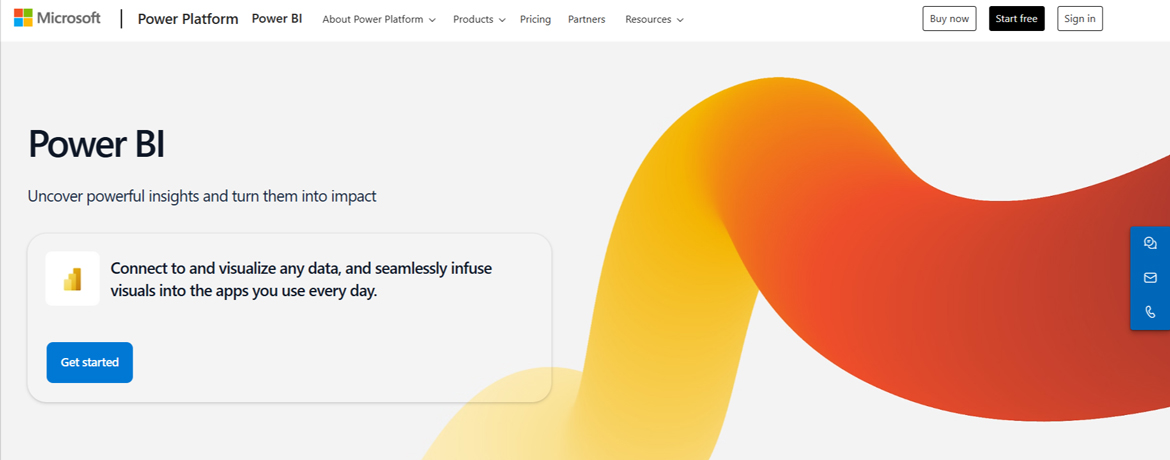
Power BI is another powerful data analysis and visualization platform that is great for small teams and large corporations alike.
The main difference with Tableau is its tight integration with the Microsoft ecosystem (Excel, Azure, Teams, etc.), making it indispensable for Windows-based companies. Power BI is often used by financial analysts, project managers and business strategists who need to quickly assess situations and make decisions.
Why Power BI is worth a try?
- AI helps you find trends and dependencies in data.
- Deep integration with Microsoft 365 (ideal if you already have everything tied to Excel and SharePoint).
- Automatically update reports and work with large amounts of data.
- Convenient dashboards for monitoring key business indicators.
There are 3 plans available for purchasing Power BI, but there is also a free trial period.
Focus and Distraction Management
Well, let’s move on to the final part of our selection and find out how services can help you keep your attention and focus.
Why is it so important for productivity? Studies show that during a standard 8-hour workday, an office worker cannot maintain constant concentration on tasks. The body will sooner or later demand a switch and ask for rest. However, the problem is that we often switch not to full rest, but to endless social media scrolling, news reading or other distractions that only steal time, and then reluctantly return to tasks.
Dedicated AI tools can help manage focus and minimize the impact of distractions.
11. Freedom

Freedom is a tool that blocks access to distracting websites and apps on both your computer and mobile devices.
If you often find yourself mindlessly browsing social networks or reading the news instead of working, Freedom can help you create a “safe environment” without temptations.
To use the service, you’ll need to select your devices, select distracting sites (like YouTube and Instagram), and set up a schedule. It’s suitable for Mac, Windows, Linux, iOS, Android, and Chrome.
Has a free trial period.
12. Brain.fm
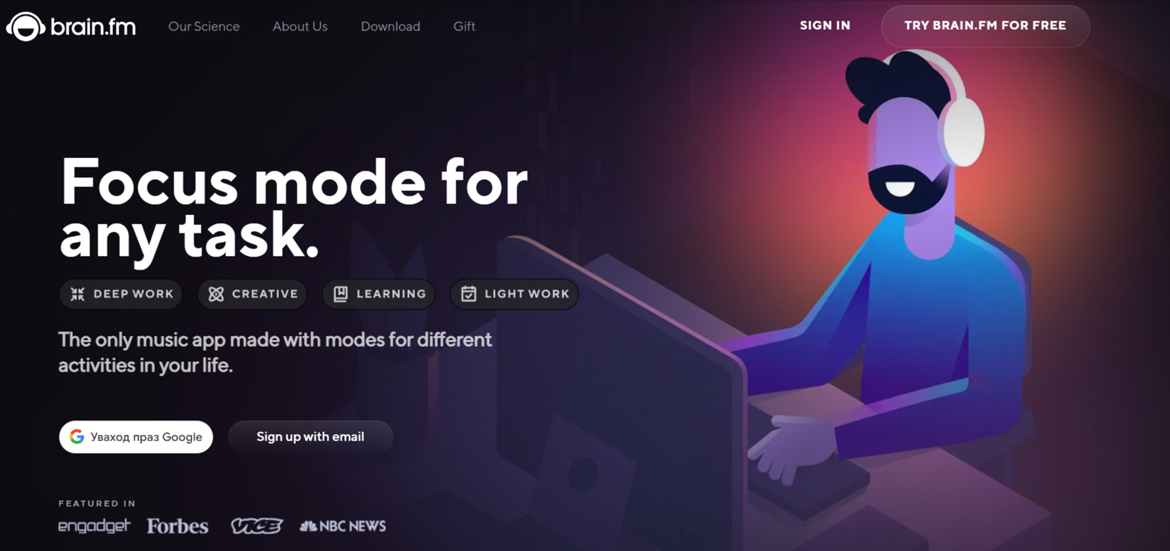
Based on the name of the service, you can already guess what it offers. Brain.fm uses artificial intelligence algorithms to generate music that helps you focus.
Unlike conventional playlists, this service creates songs with certain neuroacoustic principles that affect the brain and help you enter a state of deep concentration faster.
The service can be used not only during work tasks, but also in your free time to relax before falling asleep.
Subscription to the app is paid, but there is a 7 and 14-day free trial period.
Of course, in order to concentrate, you can choose any other convenient and proven way. For example, YouTube channels with lo-fi music are now popular, to which you can work for long hours. In such music there are no words, strong bass, they are quite neutral and disposes to good productivity.
Or maybe you like to listen to ASMR (cat purring or tapping on wood) while writing a report. For some, a good tool would be to just go outside and then work in complete silence using noise-canceling headphones. The choice is yours.
Conclusion
Productivity is not about doing as many tasks as possible in a day. It’s about managing your time wisely, focusing on what’s important and not wasting energy. And this is where different tools help everyone: some people need smart planners, some need distraction blockers, and some can’t imagine their day without an AI-assistant.
In the age of technology, the market offers thousands of solutions for every taste and purse. The main thing is not to overload yourself with dozens of services, but to choose the one that really makes your work easier and your life more comfortable. Experiment, try and find your ideal tools for productivity.
* It’s important to note that all prices mentioned in the article are for reference, current as of the date of publication, and may vary depending on the region and conditions of the supplier. It’s recommended to refer to the official websites for the most up-to-date information.



